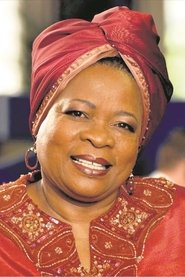
Ask Your Own Question
What is the plot?
In the opening scene of "Episode 2," Nqobile is seen waking up in her small, cluttered apartment, the sunlight filtering through the curtains. She looks tired and anxious, reflecting on the events of the previous day. The camera captures her as she stares at her phone, contemplating whether to call her estranged mother, but ultimately decides against it. Instead, she prepares for her day, her movements slow and deliberate, showcasing her internal struggle.
As she steps outside, Nqobile is greeted by the bustling sounds of the city. She walks to her job at a local café, where her co-worker, Thandi, notices her distracted demeanor. Thandi tries to engage her in light conversation, but Nqobile's responses are short and distant, revealing her preoccupation with her family issues. Thandi expresses concern, but Nqobile brushes it off, insisting she's fine.
Later that day, Nqobile receives a text from her mother, asking to meet. The message stirs a mix of emotions within her--anger, sadness, and a flicker of hope. She debates whether to respond, her fingers hovering over the screen. Eventually, she types a reply, agreeing to meet, but her heart races with uncertainty about what the encounter will bring.
The scene shifts to the meeting location, a small park where Nqobile sits on a bench, nervously tapping her foot. When her mother arrives, the atmosphere is tense. They exchange awkward pleasantries before diving into a heated conversation. Nqobile confronts her mother about the years of neglect and abandonment, her voice trembling with pent-up emotion. Her mother, defensive and remorseful, tries to explain her choices, but Nqobile struggles to accept her excuses.
After the confrontation, Nqobile storms off, feeling a mix of relief and anger. She wanders through the city, her mind racing with thoughts of her childhood and the pain of her mother's absence. The cinematography captures her isolation amidst the crowd, emphasizing her emotional turmoil. She eventually finds herself at a bar, where she orders a drink, seeking solace in the bottom of a glass.
Meanwhile, Thandi, worried about Nqobile, decides to check on her. She arrives at the bar and finds Nqobile sitting alone, visibly upset. Thandi sits down and gently encourages Nqobile to talk about what happened. Nqobile opens up about her feelings of betrayal and hurt, and Thandi listens intently, offering support and understanding. This moment of vulnerability strengthens their friendship.
As the night progresses, Nqobile receives a call from an unknown number. Hesitant, she answers, and it turns out to be a private investigator looking for information about her father, who she has never met. The investigator reveals that her father is alive and has been searching for her. This revelation shocks Nqobile, leaving her in a state of disbelief and curiosity. She hangs up, her mind racing with questions about her father's identity and why he never reached out.
The episode concludes with Nqobile standing on her balcony, looking out at the city lights. The weight of her family history hangs heavily on her, and she feels a mix of fear and determination. The camera zooms in on her face, capturing the resolve in her eyes as she contemplates the next steps in her journey to uncover the truth about her father.
What is the ending?
In the ending of "Nqobile," Season 1, Episode 2, Nqobile faces a critical decision that tests her loyalty and strength. After a confrontation with her family regarding her choices, she ultimately chooses to stand by her convictions, leading to a rift with her loved ones. The episode concludes with Nqobile walking away from her home, determined to forge her own path despite the emotional turmoil.
As the episode unfolds towards its conclusion, the tension escalates. Nqobile is seen sitting in her room, her expression a mix of determination and sadness. The walls around her are adorned with photographs of happier times with her family, but the weight of her current situation looms heavily. She reflects on her recent choices, feeling the pressure from her family to conform to their expectations.
Scene by scene, the narrative progresses. The first pivotal moment occurs when Nqobile's mother enters her room, her face etched with concern. She pleads with Nqobile to reconsider her decisions, emphasizing the importance of family and tradition. Nqobile, however, stands firm, her voice steady but laced with emotion. She expresses her desire to pursue her own dreams, which she feels are being stifled by her family's expectations. The tension in the room is palpable, as both women grapple with their conflicting desires.
The next scene shifts to the family gathering in the living room, where Nqobile's father and siblings are present. The atmosphere is thick with unspoken words as Nqobile enters, her heart racing. Her father, a figure of authority, addresses her with disappointment, questioning her choices and the path she has chosen. Nqobile feels a surge of defiance; she knows that this moment could define her relationship with her family. She speaks passionately about her aspirations, her voice rising as she articulates her need for independence.
As the argument escalates, Nqobile's siblings look on, torn between loyalty to their sister and the expectations of their parents. The emotional stakes rise, and Nqobile's frustration boils over. She declares that she cannot live a life dictated by others, and in that moment, she feels a sense of liberation mixed with sorrow. The confrontation reaches a climax when her father, unable to understand her perspective, tells her to leave if she cannot abide by their family values.
In the final scene, Nqobile stands at the threshold of her home, her heart heavy yet resolute. She takes a deep breath, glancing back at her family, who are now silent, their expressions a mix of shock and disappointment. With tears in her eyes, she steps outside, closing the door behind her. The camera lingers on her face, capturing the blend of fear and determination as she walks away from the only life she has known.
As the episode concludes, Nqobile's fate is left uncertain, but her choice to pursue her own path is clear. Her family, while still loving her, is now divided by their differing values. The episode ends on a poignant note, highlighting the struggle between personal ambition and familial loyalty, leaving viewers to ponder the complexities of Nqobile's journey ahead.
Is there a post-credit scene?
In "Nqobile," Season 1, Episode 2, there is indeed a post-credit scene that adds an intriguing layer to the episode's narrative.
As the credits roll, the screen fades back in to a dimly lit room where a figure is seen sitting at a desk cluttered with papers and photographs. The camera slowly zooms in, revealing the face of a character who has been shrouded in mystery throughout the episode. This character, with a furrowed brow and a look of deep concentration, is examining a series of images that depict various locations and people connected to Nqobile's life.
The atmosphere is tense, underscored by a low, suspenseful score that heightens the sense of urgency. The character picks up a photograph of Nqobile, her expression shifting from focus to concern. It becomes clear that this individual has a vested interest in Nqobile's journey, hinting at a deeper connection that has yet to be revealed.
As the scene progresses, the character mutters to themselves, expressing frustration over the lack of progress in their investigation. They make a note on a notepad, scribbling down a name that resonates with the audience, suggesting a potential ally or adversary in Nqobile's story. The scene ends with the character glancing out the window, a storm brewing in the distance, symbolizing the turmoil that lies ahead for Nqobile.
This post-credit scene effectively sets the stage for future conflicts and alliances, leaving viewers with a sense of anticipation and curiosity about the unfolding narrative.
What challenges does Nqobile face in her personal life during Episode 2?
In Episode 2, Nqobile grapples with the emotional fallout of her recent breakup, which leaves her feeling vulnerable and questioning her self-worth. She struggles to maintain her composure at work while dealing with the pain of her relationship's end.
How does Nqobile's relationship with her family evolve in this episode?
Nqobile's relationship with her family becomes strained as they express concern over her emotional state. Her mother tries to reach out, but Nqobile pushes her away, feeling misunderstood and isolated in her grief.
What role does Nqobile's best friend play in Episode 2?
Nqobile's best friend serves as her emotional anchor, attempting to provide support and encouragement. She encourages Nqobile to engage in social activities to distract herself from her heartache, but Nqobile is resistant, showcasing her internal struggle.
What significant event occurs at Nqobile's workplace in this episode?
At work, Nqobile faces a critical presentation that could determine her future at the company. Despite her personal turmoil, she musters the strength to deliver her presentation, but her anxiety is palpable, affecting her performance.
How does Nqobile's emotional state impact her decisions in Episode 2?
Nqobile's emotional turmoil leads her to make impulsive decisions, such as confronting her ex in a moment of weakness. This confrontation reveals her unresolved feelings and highlights her struggle to move on, ultimately complicating her emotional journey.
Is this family friendly?
In "Nqobile," Season 1, Episode 2, there are several elements that may be considered objectionable or upsetting for children or sensitive viewers.
-
Emotional Conflict: The episode delves into themes of family strife and personal struggles, which may evoke strong emotions. Characters experience moments of anger, sadness, and frustration that could be intense for younger viewers.
-
Social Issues: The narrative touches on societal challenges, including poverty and discrimination, which may be difficult for children to fully understand or process.
-
Mature Themes: There are discussions and situations that involve adult relationships and responsibilities, which may not be suitable for younger audiences.
-
Tension and Confrontation: Scenes of conflict between characters can create a tense atmosphere, potentially causing discomfort for sensitive viewers.
-
Visual Depictions of Struggle: The portrayal of characters facing hardships may include visual elements that are emotionally charged, such as expressions of despair or conflict.
These aspects contribute to a narrative that, while rich in storytelling, may require parental guidance for younger audiences.



















